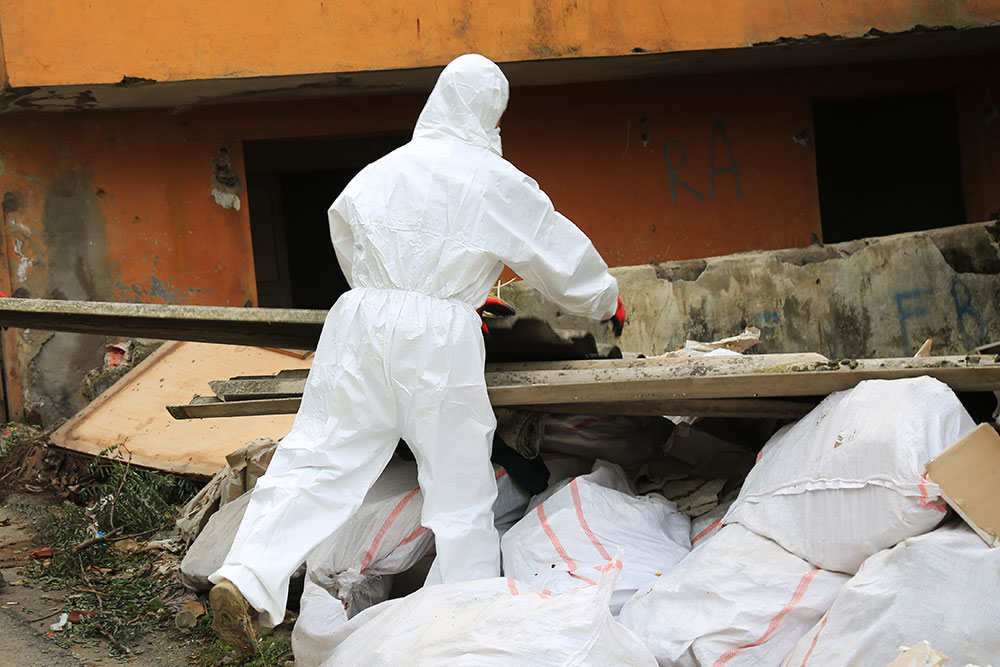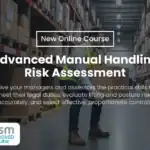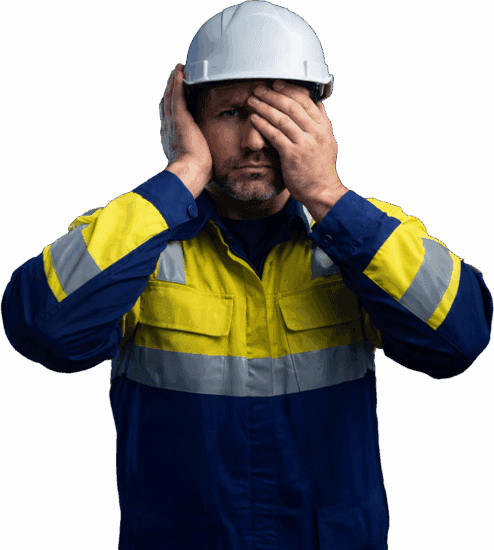Asbestos is estimated to still be present in around 1.5 million buildings in the UK. This includes workplaces, schools and homes, which makes testing for asbestos a critical duty for building owners and managers.
That’s why asbestos testing kits exist. They let you take samples and send them directly to a lab for analysis. But using a DIY asbestos testing kit without training is risky.
Read our guide to learn what an asbestos testing kit is, whether it suits you, and how to keep yourself safe when using one.
Generally, two factors make asbestos testing kits more attractive than arranging for a professional survey: time and money.
It’s generally more affordable to test for asbestos yourself and can be relatively fast. However, timelines vary depending on the speed of the postal service and how quickly labs can process your sample. A few companies promise a 24-hour sample turnaround, but this isn’t always guaranteed.
Asbestos testing kit costs vary, ranging from around £20 to over £100. The cheaper kits generally give you what you need to take a sample but expect you to arrange and pay for your lab analysis.
However, you can easily find kits that include pre-paid lab testing and delivery. All you need to do is put the sealed sample in the supplied envelope or container and send it off.
There are different asbestos testing kits available, so the exact content varies.
Some will provide the chemical agents needed to test the sample for asbestos yourself. Still, these kits are less common and often considered less reliable. But at a minimum, an asbestos testing kit should contain the following:
- Disposable gloves
- Disposable coveralls
- Face mask
- Safety glasses
- Sample bags
- Cleaning wipes
This should provide adequate personal protective equipment (PPE) to keep you safe when taking your sample.
Asbestos is a dangerous substance and any level of exposure to disturbed or frayed asbestos can be harmful. Since you must get close to any suspected asbestos or ACM and cut into it to take a sample, the risk is inherent in using any asbestos testing kit.
For this reason, some asbestos professionals consider DIY testing kits too risky for untrained individuals to use.
However, you can do a few things to help keep you safe when taking a sample.
The exact steps will vary depending on the asbestos testing kit, and you must closely follow any instructions provided. However, there are some general guidelines you should stick to that apply to every test scenario. These are:
- Use all of the PPE provided and ensure it’s fitted and fastened properly
- Isolate the testing area and remove all unnecessary persons
- Dampen the sample area with water before disturbing it
- Take as small a sample as possible (check the instructions for specifics)
- Seal the sample bags/containers properly (again, refer to the instructions)
- Dispose of any used PPE safely
- Clean any tools used for sampling thoroughly
These are all steps you can take to minimise the exposure risk, but be aware that the risk cannot be entirely eliminated. Suppose you’re not sure you can test for asbestos safely. In that case, it’s best to enlist the help of a professional asbestos surveyor.
The accuracy of the results depends on the quality of the kit and your ability to use it.
Suppose it’s your first time testing for asbestos. In that case, it’s possible that the samples you take might not be sufficient to confirm the presence of asbestos.
And not all kits are made for all types of asbestos-containing materials (ACMs). You must carefully check if any kit or lab service you choose can test the specific ACM you want to be checked.
The accuracy of the results will also depend on the quality of the lab that analyses the results. That’s why it’s always best to choose a lab accredited by the UK Accreditation Service (UKAS).
You still need to be sure your sample adequately represents the ACM you want to be tested, but choosing the services of a UKAS accredited asbestos-testing lab should give you peace of mind that the results are accurate.
The Health and Safety Executive (HSE) says you do not need a licence to legally sample asbestos. But it pays to know what you’re doing when working with a substance as dangerous as asbestos.
Our Asbestos Awareness course will help you identify asbestos in your property and protect yourself and others from exposure. You’ll learn where asbestos is commonly found and what to do when ACMs are disturbed in an emergency. This knowledge will help ensure any DIY asbestos tests you undertake are safe, accurate and worthwhile.























